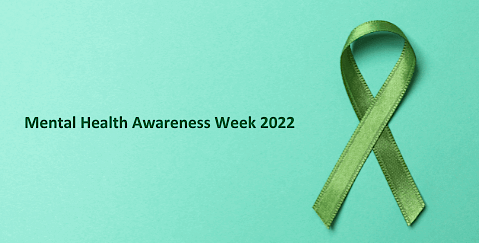Supporting the Mental Health of your Workforce – Mental Health Awareness Week 2022
Mental health is something we are all talking about, particularly in light of the Pandemic, which has given rise to a global increase in levels of anxiety and depression.
Are You Supporting Your Workforce?
9-15 May 2022 is Mental Health Awareness Week, and as one of the biggest awareness weeks across the UK and globally, we want to get you thinking about how you can support your employees, and help raise awareness in your workplace.
Whilst employers must ensure work does not cause poor mental health, employers have a broader role to play in supporting staff experiencing poor mental health for reasons unconnected to the workplace. We have put together some useful guidance to help you invest in a healthy and connected workforce.
We All Have Mental Health
The World Health Organisation famously claims ‘there is no health without mental health’, and describes mental health as ‘a state of wellbeing in which every individual realises their own potential, can cope with the normal stresses of life, can work productively and fruitfully, and are able to make a contribution to their community’.
Mental health issues can range from anxiety and depression, to bipolar disorder or schizophrenia, but people with the same conditions can experience different symptoms, and to a different extent.
This means that workplace support must be tailored to an individual’s specific needs. With mental health issues affecting one in four people, and being a major cause of long term absence at work, we highlight some things you can do to help.
Early Signs and Prevention
In a busy work environment, it can be easy to miss the early warning signs, but early intervention can help prevent issues from escalating.
Employers and managers should be alert to the early signs of stress and mental ill health. Here are some common signs you can look out for:
- negative changes to work habits or performance
- deterioration in physical appearance
- changes in demeanour
- increased absenteeism
Whilst these may not always be a sign of mental ill health, you should take the time to regularly check in with your employees, offer them support when it’s needed, and consider whether there might be any other underlying concerns. Having someone to talk to can be invaluable for someone suffering with mental ill health.
Signposting, Training and Resources
Whilst the majority of employers and managers are not equipped to advise on mental health issues, it’s important that you do have the knowledge and confidence to signpost an employee to the most appropriate source of support. This could include a GP recommendation, an Occupational Health referral, or a referral to your employee support service. By providing managers with the right training, you can help to reduce issues and promote better wellbeing in the workplace.
Promoting Awareness at Work
Help to reduce any stigma attached to mental ill health by educating your workforce and promoting awareness. Keep talking about mental wellbeing and look to embed mental health into inductions, training, and your policies and procedures.
Promote Work-Life Balance
If your employees are working long hours and are feeling stressed, this is likely to have an impact on their mental wellbeing, as well as productivity. Consider making sustainable changes, or offering flexible working arrangements so that work, and personal lives can be more manageable. Don’t be afraid to talk to your employees and make sure they get the support they need.











